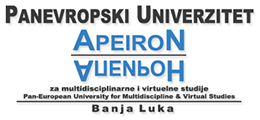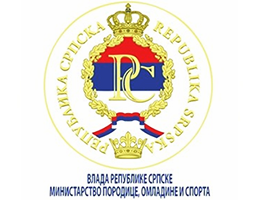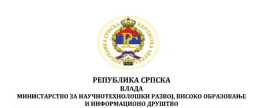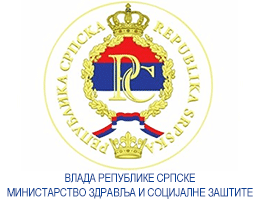Users’ Perception of a Sports Service System in a Karate Club
Volume 4, Issue 2 (2014)
Volume 4, Issue 2 (2014)
Users’ Perception of a Sports Service System in a Karate Club
Abstract:
A karate club as a sports organization is constitutively defined as a specific organizational system which has its appropriate structure that primarily relates to physical elements and informational communication. In practice, the structure of most karate clubs is mainly characterized by the existence of two segments: organizational units and operational activities. Operational activities are the most responsible for realization of goals, because through them there is a flow of people such as service users and human resources of an organization. Considering that nowadays karate clubs mostly exist as associations (non-profit organizations), a theoretical assumption that the success of non-profit organizations depends on the effective and efficacious meeting of their users’ needs definitely applies to them, namely, it depends on their organizational capacity to deliver an effective service to the “sports market”.
Furthermore, the complexity of a karate club’s goals as a non-profit sports organization is also bound by the complex individual experience of consumers in general, which directs attention of the service providers toward satisfaction of their users. Therefore, the question of adequate perception of the relation between “quality service” and “satisfaction of users” is very complex, subtle, and delicate, and it often primarily depends on different views of users and their understanding (notions) of what quality is. This, surely, has to be taken into consideration during different evaluative activities performed by the management of a sports organization.
The goal of the empirical research realized on a sample of 215 participants, the service users of “Yu Karate Do” club from Novi Sad, was to determine specific factors which can be used for evaluation of work and service quality provided by a club based on the perception and satisfaction of its immediate users. The results showed that the users represent a significant determinant in evaluation of the club’s work, considering that through their attitudes and opinions they express very precise and explicit determinants about certain factors in the service system and the work of the club.
Furthermore, the complexity of a karate club’s goals as a non-profit sports organization is also bound by the complex individual experience of consumers in general, which directs attention of the service providers toward satisfaction of their users. Therefore, the question of adequate perception of the relation between “quality service” and “satisfaction of users” is very complex, subtle, and delicate, and it often primarily depends on different views of users and their understanding (notions) of what quality is. This, surely, has to be taken into consideration during different evaluative activities performed by the management of a sports organization.
The goal of the empirical research realized on a sample of 215 participants, the service users of “Yu Karate Do” club from Novi Sad, was to determine specific factors which can be used for evaluation of work and service quality provided by a club based on the perception and satisfaction of its immediate users. The results showed that the users represent a significant determinant in evaluation of the club’s work, considering that through their attitudes and opinions they express very precise and explicit determinants about certain factors in the service system and the work of the club.
Keywords:
sports services, users, karate club
Full Text:
References:
- Dačić, D. (2014). Valorizacija sistema sportskih usluga karate kluba na osnovu stavova i mišljenja njegovih korisnika. Magistarska teza. Novi Sad: Fakultet za sport i turizam.
- Dunđerović, R. (2004). Osnovi psihologije menadžmenta. Novi Sad: Fakultet za menadžment.
- Đurić, Đ. (2007). Pojedinac i grupa. Novi Sad: Tims.
- Evans, J. R., & Lindsey, W. M. (2010). The management and control of quality. USA: South-Western Pub/Thomson.
- Gronroos, Ch. (2002). An Applied Service Marketing Theory. European Journal of Marketing, 16(7), 30-41.
- Kaplan, R. S. (2001). Strategic Performance Measurement and Management in Nonprofit Organisations. Nonprofit management & Leadership, 11(3), 353-370.
- Nešić, M. (2005). Motivaciona struktura trenera i rukovodilaca kao faktor menadžmenta u karate sportu. Neobjavljena doktorska disertacija. Novi Sad: Fakultet za menadžment.
- Nešić, M. (2008). Sport i menadžment. Novi Sad: Tims.
- Nešić, M., & Popmihajlov-Zeremski, S. (2011). Korisnički status kao determinanta evaluacije sportskih usluga. Poslovna ekonomija, V(1), 91-105.
- Nešić, M. (2013). Značaj evaluacije sportsko-rekreativnih usluga od strane njihovih korisnika. U: Jovanović, M, (Ur.), Treća međunarodna naučna konferencija ''Sportske nauke i zdravlje'', Zbornik radova, Banja Luka: Panevropski univerzitet Apeiron, Fakultet sportskih nauka, 30-41.
- Popmihajlov-Zeremski, S. (2010). Evaluacija kvaliteta sportskih usluga na bazi stavova i mišljenja zaposlenih i korisnika JP SPC ''Vojvodina'' u Novom Sadu. Neobjavljena magistarska teza. Sremska Kamenica: Fakultet za uslužni biznis.
- Popović, B. (2012). Doprinos povećanju efikasnosti uslužnih organizacija u Republici Srbiji. Doktorska disertacija. Zrenjanin: Tehnički fakultet „Mihajlo Pupin“.
- Vargo, S., & Morgan, F.W. (2005). Services in Society and Academic Thought: An Historical Analysis. Journal of Macromarketing, 25(1), str. 42-53.






